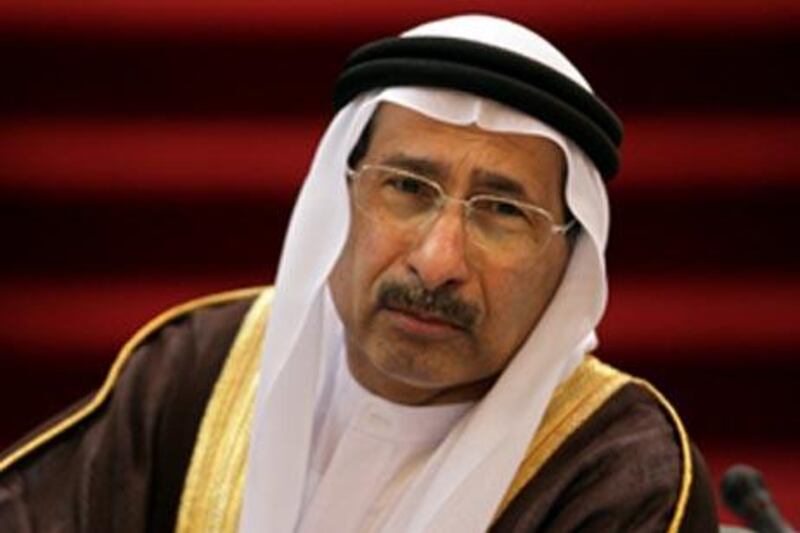The Governor of the Central Bank has called on financial institutions to pay off their international debts and become more self-reliant. "There will be a tendency to develop banking systems with 100 per cent reliance on local funding," Sultan al Suwaidi said.
"At the moment, the UAE banking system is localising liabilities of banks; that is, getting rid of foreign interbank deposits. "Also it is repaying syndicated loans, medium-term notes and European commercial paper to reduce the risk of non-renewal of such liabilities at the wrong time." On Tuesday, developers and economists called for the Government to create an agency that would buy loans from the country's banks as part of efforts to thaw a lending freeze. But Mr al Suwaidi rejected proposals to create a "bad bank" because it would not address the economy's biggest problem, that of liquidity.
"We are not aware of this (bad bank idea) at the Central Bank," he said. "I do not think the time has come to think about this, because we do not have many non-performing loans. It is not necessary. When you have large number of non-performing loans, you think about creating this vehicle, but... in our case it is just the liquidity that is affecting our financial system and our economy." Non-performing loans are expected to rise this year, prompting banks to take unusually large provisions.
But Rick Pudner, the chief executive of Emirates NBD, agreed with Mr al Suwaidi that liquidity, not non-performing loans, was the problem. "The non-performing loans are under control, the quality of the loan book is fine. We have taken impairment provisions," Mr Pudner said. Most banks have seen their loan-to-deposit ratios climb above the regulatory limit of 100 per cent, but find themselves incapable of lowering the rate given the dearth of liquidity.
Mr Pudner said easing the liquidity crunch depended largely on the Government's readiness to inject more money. "Money has to come to the deposits," he said. "The Central Bank, the Minister of Finance are fully on top of these things and addressing it. "It depends on how quickly these measures are introduced and the degree of pain felt in the market." Mr al Suwaidi said the Central Bank was considering whether to inject more funds into the banking system.
The bank also announced yesterday it would form an emergency committee with bank officials to find ways to meet challenges from the global financial crisis. It has offered Dh120 billion (US$32.67bn) in emergency facilities to the banking system. Abu Dhabi has also injected Dh16bn of new equity into five of its banks and the Dubai Government launched a $20bn sovereign government bond programme two weeks ago, $10bn of which was bought by the Central Bank.
The moves have helped ease the pressure on market rates. The one-month Emirates interbank offered rate fell to 2.96 per cent yesterday, down from more than 4.5 per cent last October. uharnischfeger@thenational.ae





